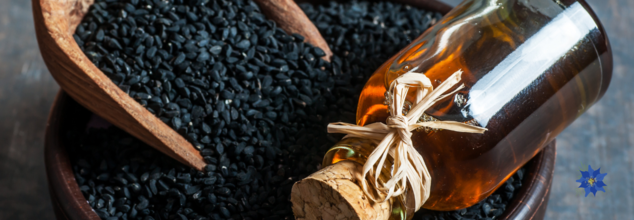- Health Conditions A-Z
- Health & Wellness
- Nutrition
- Fitness
- Health News
- Ayurveda
- Videos
- Medicine A-Z
- Parenting
- Web Stories
Ayurvedic Fruit That Can Help You With Hair Growth And Better Your Digestive Health

(Credit-Canva)
Unlike modern medicine or other medicinal products, ayurvedic herbs and fruits are found all around us. Drawing from our nature and surroundings, Ayurveda provides us with ingredients as well as remedies, from readily available products. One such ingredient is the Indian gooseberry.
Amla, also known as Indian gooseberry, is a very popular ayurvedic fruit in southeast Asia. This tree is famous for its small, green fruits, which have a unique taste that is often described as sour, bitter, and sharp. The great thing about Amla is that it is available in many different forms. Whether it is candied, pickled, or raw so that you can make different dishes or add them to your food. You may also find amla available in powered form or as juice in certain products. However, if you are buying packaged amla, it is best to look at the ingredients that are taken to make it.
Ayurvedic Benefits of Amla Juice
Amla juice is not just tasty and easy to use; it's also very healthy and offers many benefits.
Boosts Your Immune System
Amla juice is packed with vitamin C, a strong helper for your body's defenses. This vitamin protects cells from damage and helps your immune system work better. Getting enough vitamin C may help prevent infections and even shorten colds. While animal studies show protection against cell damage, more human research is needed to fully understand amla juice's effect on immunity.
Supports Liver Health
Promising animal studies suggest amla juice can improve liver function. For instance, it helped prevent fatty liver disease in rats on high-sugar or high-fat diets. Amla juice is rich in antioxidants and has strong anti-inflammatory qualities, both beneficial for liver health. However, more human research is needed to confirm these liver benefits.
Aids Digestion
Amla juice may help your digestion. A study on people with acid reflux found amla extract significantly reduced heartburn. Older animal studies suggest amla fruit can help with diarrhea, stomach cramps, and may even heal stomach ulcers due to its antioxidants. Further studies are needed to see how drinking amla juice specifically affects human digestion.
Promotes Heart Health
Studies suggest amla extract can improve heart health by reducing bad cholesterol, triglycerides, and inflammation. It also helps lower blood pressure, a key risk factor for heart disease. These studies used concentrated extract, so more research is needed to confirm if drinking amla juice offers the same heart benefits, especially for cholesterol management and blood pressure.
May Encourage Hair Growth
Amla is often used to boost hair growth and prevent hair loss. Studies show applying amla-based serums can improve hair growth. Amla may block an enzyme linked to hair loss and stimulate hair follicle cells. While amla juice contains helpful nutrients like antioxidants and vitamin C, more research is needed to understand if drinking it directly affects hair health.
Boosts Kidney Health
Amla juice appears to support kidney health, likely due to its antioxidants. Animal studies show amla extract protects against kidney damage and helps maintain kidney function, even in cases of age-related issues or toxin exposure. It also helps increase beneficial antioxidant levels in the kidneys. More research is necessary to see how normal amounts of amla juice affect human kidney function.
These Ayurvedic Herbs Could Get You Relief From Joint Pain: Here Is How To Use Them

Joint pain is a common concern that affects people across all age groups. Whether caused by ageing, autoimmune conditions like arthritis, or wear and tear from daily activity, it can significantly impact mobility and quality of life. While modern medicine often focuses on symptom management, Ayurveda takes a different approach, aiming to address the root cause by restoring internal balance using natural remedies and lifestyle changes. Among the most effective tools in Ayurvedic healing are specific herbs known for their anti-inflammatory and joint-supporting properties.
What’s Vata Got to Do With It?
In Ayurvedic lingo, your body is ruled by three doshas — Vata, Pitta and Kapha. Joint pain? It is Vata dosha. This dosha is linked to all things dry, cold and mobile. When it goes off balance, it turns your joints into squeaky, rusty hinges. Ayurveda’s goal? Calm that chaotic wind energy down, re-lube your inner machinery, and get you moving without sounding like a haunted house door.
Here are five herbs that could rescue your joints from all the pain.
Turmeric
Turmeric adds colour to your curry, fights inflammation, and has a reputation for making your joints feel less like they’re on fire. What works is curcumin, its active compound, which basically tells swelling and stiffness to sit down and shut up. Stir some into warm milk; you could add a pinch of black pepper, toss it into your dal, or pop a supplement if you want. Remember, everything in moderation only.
Ashwagandha
Ashwagandha doesn’t come for your joints directly; it comes for the root cause that’s making them worse. This adaptogen helps you stress less, sleep better, and stop clenching your jaw every time someone says “deadline.” Since stress ramps up inflammation, Ashwagandha’s calm-down effect can actually help your joints breathe a sigh of relief. Mix the powder into smoothies, sip the tea, or go the easy route with capsules.
Boswellia
Boswellia sounds like a perfume, but it's actually tree sap, and it's here to kick inflammation out. It works by blocking the enzymes that stir up trouble in your joints. Particularly helpful if you’re dealing with osteoarthritis or its angry cousin, rheumatoid arthritis.
Ginger
Ginger isn't just for your chai. It’s got serious joint-healing capability due to compounds called gingerols. These help reduce pain, increase circulation, and add a little heat to your system. Brew it into tea, grate it into soups, or chew on it raw if you’re feeling brave and have zero taste buds left.
Guggul
This resin is rich in guggulsterones, which help reduce inflammation and keep your joints nice and juicy. You’ll usually find it in capsule form. Just make sure it’s high-quality stuff, not bargain-bin leftovers.
Don’t Forget the Life Bits
Ayurveda’s all about the whole picture. Herbs help, but you’ve also got to treat your joints like any other vital organ:
- Eat warm, moist food: Think khichdi, soups, and ghee-drizzled veggies. Avoid anything that feels like it came straight out of a freezer aisle.
- Move gently but often: Yoga, swimming or even a slow walk will do. Your joints are like cranky cats — they don’t like sudden movement but hate being ignored.
- Sleep like it’s your job: Seriously. Deep rest helps your body do behind-the-scenes repair work.
- Breathe and decompress: Stress is basically Vata’s bestie. Break them up with meditation, breathwork or whatever helps you stop clenching your shoulders like they owe you money.
Ayurveda doesn’t hand you a quick fix; it hands you a warm cup of tea and a gentle nudge toward balance. These herbs won’t magically turn you into a human pretzel overnight, but give them time, pair them with mindful habits, and you might just stop groaning every time you bend down to tie your shoes.
From Brain to Heart Health: Here is Why Black Seed Oil is Ayurveda’s Favourite

Growing up in a South Indian household teaches you one thing: ancient herbs can never go wrong. And while wellness trends come and go, Ayurveda holds its ground firmly. Black seed, from the Nigella sativa plant, is one such star. Revered in Ayurvedic and Unani traditions for centuries, this oil, squeezed from the seeds of the Nigella sativa plant, is now resurfacing as a modern-day multi-tasker. Found in parts of Southwest Asia, the Middle East, and Southern Europe, this oil's benefits are far from outdated.
What Makes It Special?
The real magic of black seed oil lies in a compound called thymoquinone. It’s a powerful antioxidant that helps protect your body’s cells from damage. Think of it as your internal rust remover, cleaning up the free radicals that age you from the inside out. And it’s not just about looking good, it’s about keeping your organs happy too.
Keeps Your Heart in Check
Heart issues aren’t just something to think about in your 60s. Even younger people are seeing blood pressure and cholesterol problems crop up. Black seed oil may help manage these by lowering “bad” cholesterol and keeping blood pressure within range. That doesn’t mean you can eat junk and drizzle oil over it, but it’s a nice addition to a heart-friendly routine.
Breathe Easy
If you’ve ever had a stuffy nose or struggled with asthma, you know how miserable it can be. Black seed oil has long been used to ease breathing troubles. It’s said to reduce inflammation in the airways, making it easier to breathe, especially during allergy season or a change in weather.
Stress Support
Ever walked into a room and forgotten why you’re there? Or struggled to stay focused? Black seed oil might help with that. Early studies suggest it may support memory and learning by protecting brain cells from damage. It’s not a miracle fix, but it’s definitely not just another overpriced “brain booster” either.
Supports Blood Sugar Balance
Managing blood sugar isn’t only for diabetics. Even small dips and spikes throughout the day can mess with your mood, energy, and cravings. Some research shows black seed oil might help stabilise blood sugar levels and improve insulin sensitivity, which is great news if you’re trying to keep your energy steady.
Better Brain Health
If stress is your permanent plus one these days, black seed oil could be worth a try. There’s some evidence that it can reduce cortisol levels, aka the stress hormone. You won’t suddenly float into a zen state, but it might help take the edge off without needing a long nap or a rage walk.
Faster Wound Healing
Black seed oil has been used traditionally on minor wounds, acne scars, and rashes. Thanks to its antibacterial and anti-inflammatory properties, it may speed up healing and keep skin calm. Some people even mix it into their moisturiser for an extra boost (just patch-test first).
The Right Kind of Fat
We’re often told to cut out fats, but not all fats are bad. Black seed oil contains healthy unsaturated fats that your body actually needs for things like hormone production and cell repair. So, if your diet’s a bit low on good fats, a small dose of this oil could help.
Glowing Skin
Dry, angry, breakout-prone skin? This oil might soothe it all. People have used black seed oil to calm eczema, reduce acne, and restore skin's natural barrier. Some even say it gives their skin a low-key glow with regular use.
From Herbs To Healing Rituals: Why Medieval Wellness Trends Are Back And Gen Z Can’t Get Enough

Credits: The British Library/The Hague, Museum Meermanno
When we think of the Middle Ages, wellness probably isn’t the first thing that comes to mind. The era rather brings up the plague, questionable hygiene and a whole lot of superstition but Gen Z armed with smartphones and a deep skepticism of mainstream healthcare is digging deep into the past. And oddly enough, medieval wellness is trending.
TikTok is filled with castor oil packs, herbal salves, beef tallow skincare, and DIY tinctures. What’s driving this renaissance of ancient remedies in the most hyper-modern age yet? As it turns out, recent academic research may help explain the phenomenon.
Medieval Medicine Wasn’t All Superstition
A research team led by Binghamton University, alongside scholars from Fordham, St. Andrews, Utrecht, and Oslo, has been revisiting early medieval Latin manuscripts—many of which were previously overlooked or misinterpreted. Their findings are turning long-held assumptions upside down.
What they discovered is this: people living in the early Middle Ages were far more engaged with science, observation, and the natural world than they’ve been given credit for. They didn’t just pray and hope for the best. They took notes. They experimented. They documented.
Meg Leja, a history professor at Binghamton, noted that healing knowledge wasn’t confined to doctors or monasteries. “People were engaging with medicine on a much broader scale than had previously been thought,” she said in a release. Many manuscripts that weren’t even about medicine—like those covering poetry or grammar—contained references to health practices, showing how integrated wellness was in everyday life.
Rewriting the Wellness Narrative of the “Dark Ages”
The term “Dark Ages” has long been a catch-all for a time seen as backward and regressive. But that view doesn’t hold up under scrutiny. While early medieval medicine lacked the anatomical precision or germ theory of today, people weren’t blindly fumbling in the dark.
They believed in Humoral Theory—a system centered on balancing four bodily fluids—and while outdated now, it represented a structured, logical approach based on the best science available. Remedies used herbs, oils, and rituals rooted in centuries of experiential knowledge.
Thanks to the Corpus of Early Medieval Latin Medicine (CEMLM) project, the number of known medical texts from the era has nearly doubled. That means modern historians are getting a much clearer picture of how people treated everything from migraines to digestive distress.
Why Is Gen Z All Over Medieval Medicine?
It’s no secret that younger generations are disillusioned with many aspects of modern healthcare—whether it’s the impersonal nature of treatment, limited access, high costs, or side effects of pharmaceuticals. Social media, particularly TikTok and Instagram, has become a key driver of wellness culture, especially trends that promise to be “natural,” “clean,” or “ancestral.”
Medieval medicine—despite being centuries old—checks a lot of boxes for this audience. It’s holistic. It emphasizes plant-based treatments. It often comes with a spiritual or ritualistic component. And it stands in contrast to institutionalized, clinical medicine, offering a kind of “back-to-roots” alternative.
Trending remedies like chamomile for anxiety and aloe vera for skin irritations were also staples of medieval care. Some treatments were surprisingly ahead of their time. A popular headache remedy involved crushing the stone of a peach, mixing it with rose oil, and applying it to the forehead. It sounds wild—but modern science backs rose oil’s ability to ease migraines.
This convergence of medieval wisdom and modern virality is more than aesthetic. There’s something culturally powerful about ancient knowledge being resurrected in an age driven by algorithms and digital everything. The same way fashion recycles vintage styles, wellness trends are now pulling from millennia-old texts.
But there’s also risk here. Not all medieval remedies are safe or practical by today’s standards (see: lizard shampoo for flowing hair). Some tips can range from ineffective to harmful if applied without context or modern evidence. Still, the interest is pushing researchers and practitioners to revisit the roots of medicine, prompting a more inclusive narrative of history—and in some ways, offering gentler alternatives in a high-stress world.
There’s something symbolic about looking backward to move forward. In a society increasingly overwhelmed by information, pollution, and pharmaceuticals, ancient wellness can feel oddly grounding. Even if you’re not rubbing crushed peach pits on your forehead, the broader takeaway resonates: nature has long held tools for healing, and we may have underestimated the past.
In a way, this rediscovery is also about reclaiming knowledge that was buried or dismissed. For centuries, herbal medicine and folk healing—often practiced by women, midwives, and rural communities—were excluded from the medical canon. The medieval revival is helping to unearth those voices.
Where Science and Tradition Intersect?
That doesn’t mean we should replace our healthcare systems with medieval remedies. But integrating time-tested traditions into modern practice could add value. Science can coexist with rituals. Evidence-based medicine can benefit from deeper engagement with culture, environment, and experience.
Researchers like Leja hope the CEMLM project will continue expanding, giving us a more nuanced understanding of how our ancestors thought about the body, illness, and healing. And thanks to Gen Z’s curiosity (and TikTok’s endless scroll), these stories aren’t staying locked in archives—they’re getting a new life online.
The revival of medieval wellness isn’t just a quirky trend or an aesthetic throwback. It’s a reflection of our current anxieties—and our desire for something that feels human, connected, and enduring.
Whether or not lizard shampoo makes a full comeback is up for debate but the deeper story is clear: the so-called “Dark Ages” were more enlightened than we thought. And Gen Z, ironically, might be the generation to shine a light on them.
© 2024 Bennett, Coleman & Company Limited

